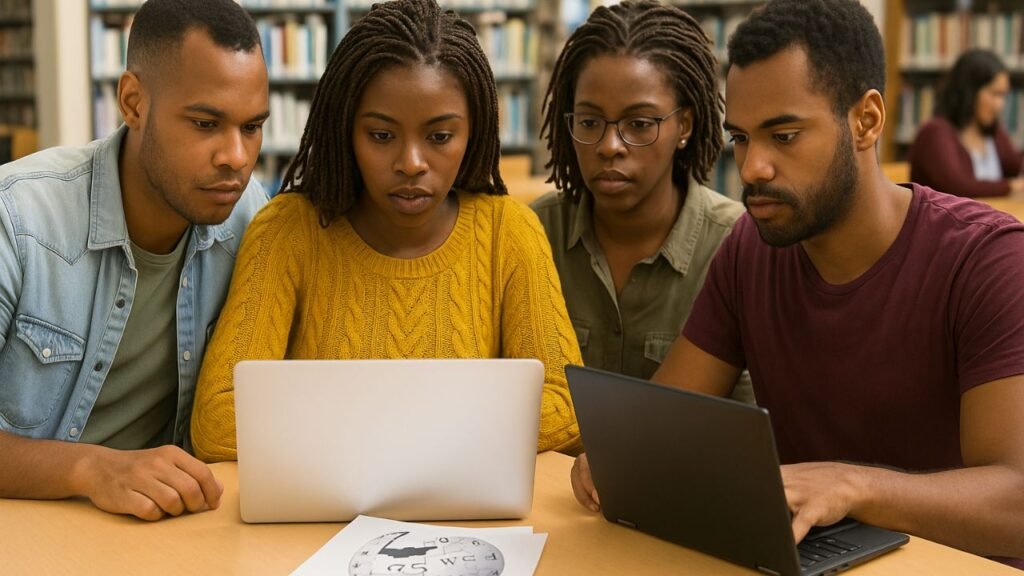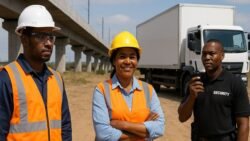Highlights Digital Representation Gap – African science and technology has historically been underrepresented on global digital platforms, and Wikipedia is no exception. Despite Africa being home to innovative solutions in renewable energy, agriculture, healthcare, and information technology, many of these achievements remain largely invisible in online knowledge repositories. The notability criteria and editorial focus of Wikipedia often prioritize Western-centric narratives, inadvertently marginalizing contributions from African scientists, engineers, and tech innovators. This digital gap affects public perception, policymaking, and even funding opportunities, as global audiences rely on online platforms to identify credible research and emerging talent. Several initiatives, including Wikimedia Foundation programs in Africa, aim to close this representation gap, but systemic challenges persist. From missing biographies of leading African researchers to the lack of coverage on indigenous technological solutions, the online absence of African science narratives highlights a pressing need for intentional documentation. Addressing this gap not only celebrates African ingenuity but also promotes a more inclusive, globally representative knowledge ecosystem.

Challenges Behind African Science Representation on Wikipedia
One of the key challenges contributing to the underrepresentation of African science on Wikipedia is the lack of trained contributors from the continent. Many African researchers and technologists do not have the time, resources, or awareness to create and edit Wikipedia entries, which requires familiarity with its editorial guidelines and notability standards. Additionally, language barriers pose a significant problem, as a majority of Wikipedia content is in English, while Africa has thousands of local languages that hold valuable knowledge. Moreover, limited access to credible online sources documenting African research further exacerbates the problem. News articles, peer-reviewed publications, and tech documentation often exist behind paywalls or in localized journals that are not indexed in widely accessed databases. Consequently, this systemic scarcity of verifiable references leads to the deletion or absence of many African science and technology entries. The structural bias of global knowledge platforms, combined with socio-economic limitations and digital literacy gaps, results in a skewed narrative where African innovations are frequently overlooked, underappreciated, or misrepresented.
Impact of the Digital Representation Gap
The absence of African science and technology on Wikipedia and similar platforms has profound implications. Researchers, policymakers, and students worldwide rely on Wikipedia as an initial source of information, which means that missing entries can affect visibility, collaboration, and funding opportunities. For instance, innovative solutions in renewable energy such as solar microgrids in East Africa or agricultural technologies like drought-resistant crops in Southern Africa often go unnoticed outside local contexts. This digital invisibility also affects educational equity, as students seeking role models in STEM fields have fewer accessible examples of African excellence. Furthermore, the underrepresentation contributes to a perception bias where African science is mistakenly assumed to be less advanced or relevant. Closing this digital gap can help foster global partnerships, attract international investment, and inspire future generations to pursue scientific and technological careers, creating a more balanced and accurate portrayal of global innovation.
Efforts to Improve African Digital Representation
Several organizations and initiatives are actively working to improve the digital representation of African science on Wikipedia. Programs such as WikiAfrica and the African Science Wiki Project aim to train editors, provide resources, and curate content that highlights notable African scientists and technological achievements. Universities and research institutions are beginning to encourage faculty and students to participate in knowledge documentation, bridging the gap between research output and online visibility. Furthermore, collaborations between tech hubs and open-access journals are providing verified references that make it easier to meet Wikipedia’s content standards. These initiatives emphasize not only the creation of content but also the importance of maintaining accurate and culturally contextualized narratives. By empowering local communities to document their innovations, Africa is gradually reclaiming its rightful place in the global digital knowledge ecosystem, ensuring that future generations can access a more comprehensive and representative account of scientific achievement.
Future Prospects and Recommendations
Looking ahead, the potential for improving African science representation on Wikipedia and other digital platforms is promising but requires sustained effort. Investment in digital literacy, particularly in underrepresented regions, can empower a new generation of contributors who can document local innovations. Policies promoting open-access publishing and digital archiving of African research will provide the verifiable sources needed to support Wikipedia entries. Additionally, global organizations can play a supportive role by funding training workshops, translation projects, and collaborative platforms that highlight Africa’s technological achievements. Institutions like the African Science Network are already fostering cross-border knowledge sharing, which can amplify visibility and recognition. Ultimately, bridging the digital representation gap is not just a matter of equity but also of global knowledge enrichment, as Africa’s diverse and innovative solutions hold valuable lessons for science, technology, and sustainable development worldwide.







